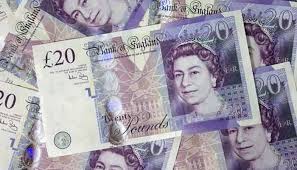The Pound Rate Today in Pakistan holds significant importance for businesses, travelers, and individuals engaged in international transactions. Whether you’re planning a trip, making investments, or conducting business, knowing the current exchange rate between the British pound and the Pakistani rupee is crucial for making informed decisions.
Understanding Pound to Pakistani Rupee Exchange Rate
Exchange rates represent the value of one currency in terms of another. The pound to Pakistani rupee exchange rate indicates how many Pakistani rupees are required to purchase one British pound. This rate fluctuates constantly due to various factors such as economic conditions, political stability, and market sentiment.
Current Pound Rate Today in Pakistan
Staying updated with the pound rate today in Pakistan is essential for anyone involved in currency exchange. Reliable sources such as financial websites, banks, and currency exchange platforms provide real-time updates on exchange rates, allowing individuals to make timely transactions.
UBL Exchange Rate for Pound to Pakistani Rupee
United Bank Limited (UBL) is one of the leading banks in Pakistan offering currency exchange services. Customers can visit UBL branches or use online platforms to exchange pounds for Pakistani rupees at competitive rates. UBL ensures transparency and efficiency in currency exchange transactions.
Factors Affecting Pound Rate Today in Pakistan
Several factors influence the pound rate in Pakistan, including economic indicators like inflation, interest rates, and trade balances. Political stability and geopolitical events also play a significant role in shaping currency values. Investors and traders closely monitor these factors to anticipate exchange rate movements.
Comparing Pound Rates Across Different Banks
Various banks in Pakistan offer currency exchange services with differing exchange rates and fees. Comparing pound rates across different banks allows individuals to identify the most favorable rates and minimize conversion costs. Factors such as convenience, reliability, and reputation of the bank should also be considered.
Impact of Global Events on Pound Rate in Pakistan
Global events such as Brexit have a profound impact on the pound rate in Pakistan. Political developments, economic policies, and trade agreements affect investor confidence and currency values. Understanding the implications of global events helps individuals navigate currency fluctuations effectively.
Tips for Currency Exchange
When exchanging pounds to Pakistani rupees, it’s essential to consider factors such as exchange rates, fees, and transaction security. Planning ahead, researching rates, and avoiding last-minute transactions can result in better exchange deals. Additionally, opting for reputable banks or exchange platforms ensures a smooth transaction experience.
Forecasting Pound Rate Trends
Forecasting pound rate trends involves analyzing historical data, economic indicators, and market sentiment. While it’s challenging to predict currency movements accurately, experts use various tools and methodologies to provide insights into future exchange rate trends. Keeping abreast of expert forecasts helps individuals make informed decisions.
Benefits of Monitoring Pound Rate
Monitoring the pound rate offers several benefits, including optimizing international transactions, maximizing returns on investments, and minimizing currency exchange risks. By staying informed about exchange rate movements, individuals can capitalize on favorable rates and protect against currency fluctuations.
Risks Associated with Currency Exchange
Currency exchange involves inherent risks such as exchange rate volatility, transaction costs, and potential scams. Hedging strategies such as forward contracts and options can help mitigate these risks. It’s essential to exercise caution and conduct thorough research before engaging in currency exchange transactions.
Historical Pound to Pakistani Rupee Exchange Rates
Analyzing historical pound to Pakistani rupee exchange rates provides insights into past trends and patterns. Historical data can help individuals understand long-term currency movements and anticipate future fluctuations. By studying historical exchange rates, individuals can make more informed decisions regarding currency exchange.
Understanding Currency Conversion Fees
In addition to exchange rates, currency conversion fees also impact the overall cost of currency exchange. Banks and exchange platforms may charge various fees such as service charges, commission fees, and spread costs. Being aware of these fees and choosing low-cost alternatives can result in significant savings.
Conclusion
In conclusion, staying informed about the Pound to Pakistani Rupee Rate Today UBL is essential for individuals and businesses involved in currency exchange. By understanding exchange rate dynamics, monitoring market trends, and following expert forecasts, individuals can make informed decisions regarding currency transactions. Whether it’s for travel, investment, or business purposes, being aware of the pound rate empowers individuals to optimize their financial transactions effectively.
FAQs (Frequently Asked Questions)
- What is the best time to exchange pounds to Pakistani rupees?
- The best time to exchange currency depends on various factors such as market conditions, economic indicators, and personal preferences. Monitoring exchange rate trends and consulting with financial experts can help individuals identify favorable exchange opportunities.
- How often do exchange rates fluctuate?
- Exchange rates can fluctuate frequently due to factors such as economic news, geopolitical events, and market sentiment. While some fluctuations may be minor and short-term, others can be more significant and long-lasting.
- Is it better to exchange currency at a bank or at an exchange booth?
- Both banks and exchange booths offer currency exchange services, each with its advantages and disadvantages. Banks may offer better rates and security, while exchange booths may provide more convenience and flexibility. It’s essential to compare rates and fees before making a decision.
- Can I negotiate exchange rates at banks?
- Banks typically have fixed exchange rates that may not be negotiable. However, larger transactions or special circumstances may warrant discussions with bank representatives regarding exchange rates and fees.
- How can I protect myself from currency exchange scams?
- To protect against currency exchange scams, it’s essential to deal with reputable banks, exchange platforms, or licensed money changers. Avoiding unsolicited offers, verifying exchange rates, and conducting transactions in secure environments can help prevent scams.











